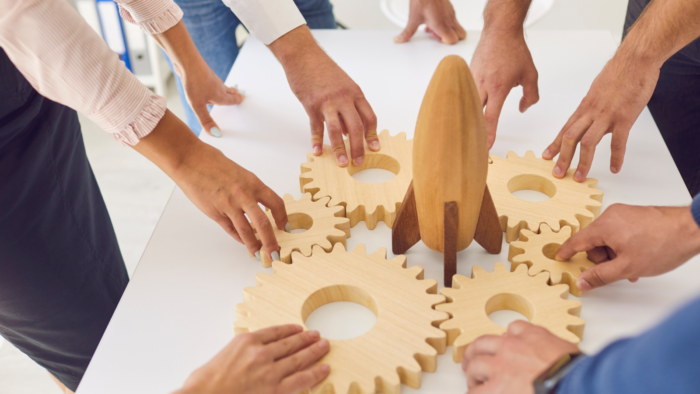
Any organization’s ability to succeed in the intensely competitive business environment of today depends on a wide range of variables.
Employee development is the most important of them all but is frequently ignored. It’s a strategic imperative that can make or break a firm, not just a trendy phrase or HR project.
We will examine the purpose and importance of staff development in this blog article, as well as how it may support the expansion and success of your company.
Understanding Employee Development
Employee development is a comprehensive process that aims to improve and enhance the knowledge, skills, and abilities of your workforce. It’s about more than just sending employees to training workshops or seminars. Instead, it encompasses a holistic approach that includes formal education, on-the-job learning, mentoring, coaching, and a myriad of other strategies. The goal is to empower your employees to reach their full potential, aligning their growth with the company’s objectives.
Why Employee Development Matters

Increased Productivity and Efficiency
Investing in employee development leads to a more skilled and knowledgeable workforce. When your employees continually acquire new skills and refine existing ones, they become more efficient in their roles. This heightened productivity can significantly impact the overall efficiency of your business operations.
Enhanced Employee Engagement
Employees who feel supported in their personal and professional growth tend to be more engaged. They see a clear path for their development within the organization, which fosters loyalty and commitment. An engaged workforce is more likely to go the extra mile, resulting in improved customer satisfaction and better business outcomes.
Talent Retention
High employee turnover is not just costly but also disruptive to business continuity. Employee development helps in retaining top talent. When employees see opportunities for growth and development within your organization, they are less likely to seek opportunities elsewhere. This can save your company both time and money in recruiting and training new staff.
Adaptability and Innovation
In today’s rapidly evolving business environment, adaptability and innovation are key to staying competitive. Employee development equips your staff with the skills and mindset needed to adapt to changes and contribute fresh ideas. This is invaluable for staying ahead in dynamic markets.
Reward Programs ─ A Vital Component of Employee Development

Reward programs for your staff play a pivotal role in employee development. These programs provide tangible incentives and recognition for outstanding performance, which can be a powerful motivator for your workforce. Such programs can include bonuses, promotions, awards, and other forms of recognition.
One of the key benefits of a reward program for your staff is that it can be tailored to align with your company’s development goals. For example, you can offer bonuses for employees who complete specific training programs or achieve certain skill milestones. This not only encourages individual growth but also helps meet organizational objectives.
Moreover, reward programs can create healthy competition among your employees, spurring them to excel and continuously develop their skills. When employees see that their efforts are directly linked to rewards and recognition, they are more likely to proactively engage in their development.
Implementing Employee Development Programs

To effectively implement employee development programs in your organization, consider the following steps:
Assessment and Planning
Assessment and planning are the foundational pillars upon which successful employee development programs are built. It all begins with a thorough evaluation of your workforce’s current skills, competencies, and developmental needs. This assessment phase is not merely about identifying gaps; it’s about gaining a holistic understanding of each employee’s strengths and areas that require improvement.
Once you have this insightful overview, you can strategically plan how to address these needs. This planning stage involves creating personalized development paths that align with both the individual aspirations of your employees and the overarching goals of your organization. It’s the roadmap that guides your staff towards growth, ensuring that the investments made in their development yield maximum returns for both them and the company.
Providing Resources and Support
Ensure that employees have access to the resources they need for development, whether it’s training materials, mentors, or financial support for further education.
Setting Clear Expectations
Communicate expectations clearly to employees. Let them know what skills and competencies they should aim to develop and how these align with their career progression within your business.
Continuous Feedback and Evaluation
Regularly evaluate the progress of employee development programs and provide feedback. Adjust the programs as necessary to ensure they remain effective and relevant.

Recognition and Rewards
As mentioned earlier, incorporate reward programs as a motivator for employees to actively participate in their development. These rewards should be meaningful and reflect the value of their contributions.
In conclusion, employee development is not a luxury but a necessity for the success of your business. It empowers your workforce to be more productive, engaged, and adaptable, ultimately driving innovation and growth.
By implementing effective development programs and incorporating reward systems, you can create a thriving work environment where both employees and the organization prosper. In today’s competitive landscape, investing in your employees’ growth is an investment in the future success of your business.








